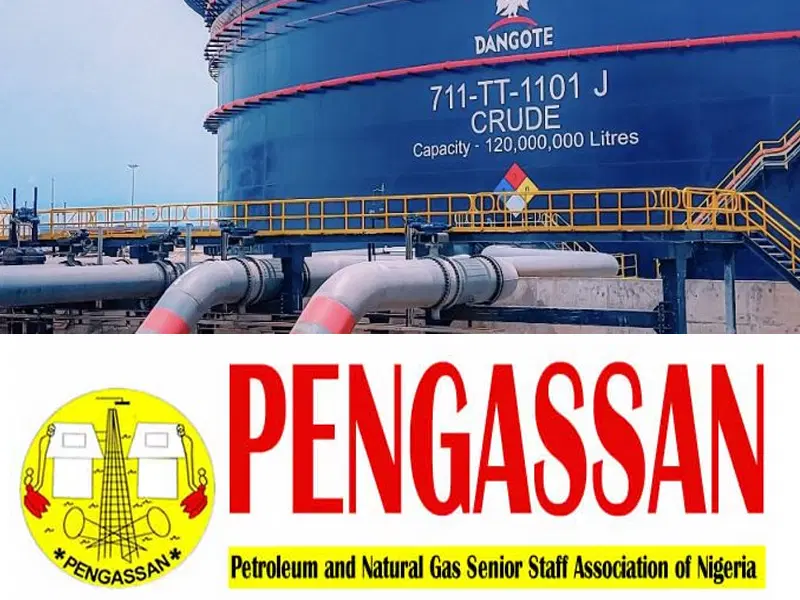Nigeria’s oil and gas sector ground to a halt on Monday as the Petroleum and Natural Gas Senior Staff Association of Nigeria (PENGASSAN) launched a strike that shuttered critical regulatory institutions.
The Nigerian National Petroleum Company Limited, the Nigerian Upstream Petroleum Regulatory Commission, and the Nigerian Midstream and Downstream Petroleum Regulatory Authority all ceased operations following the union’s weekend directive.
Total Compliance Across Oil Agencies
The industrial action achieved complete success across Nigeria’s petroleum infrastructure, with union members withdrawing services nationwide. At NUPRC headquarters in Abuja, the main gate remained locked throughout the day, stranding employees outside as security operatives enforced the strike directive and denied all entry.
Also Read:
Operations at NMDPRA headquarters in the Central Business District came to a complete standstill as workers maintained full compliance. Tony Iziogba, PENGASSAN Chairman in NMDPRA, said that the union had achieved “100 per cent compliance,” effectively restricting access to both staff and visitors across all affected agencies.
Dangote Refinery Dispute Triggers Crisis
The strike stems from allegations that Dangote Petroleum Refinery wrongfully dismissed approximately 800 workers, a move PENGASSAN characterizes as a flagrant violation of Nigerian labour laws and International Labour Organisation conventions. The union claims the refinery terminated workers for exercising their right to join the union and subsequently replaced them with foreign workers.
PENGASSAN’s response extends beyond the strike to include a directive halting all crude oil and gas supplies to the Dangote facility. General Secretary Lumumba Okugbawa issued a strongly worded resolution declaring, “All processes involving gas and crude supply to Dangote Refinery should be halted immediately,” while instructing International Oil Companies branches to “ramp down gas production and supply to Dangote Refinery and petrochemicals.”
Energy Sector Faces Supply Disruption
The strike’s timing poses severe risks to Nigeria’s already fragile energy sector, with oil marketers warning of imminent disruptions in fuel distribution. The shutdown threatens to choke domestic markets, inevitably driving up both demand and prices across the country.
The nationwide action began at 12:01 am on Monday, September 29, 2025, with PENGASSAN members across offices, companies, institutions, and agencies ceasing all services. Field location workers commenced their strike earlier, downing tools at 6:00 am on Sunday, September 28, and beginning a round-the-clock prayer vigil.
Blackouts and Fuel Scarcity Loom
The paralysis of key regulatory bodies heightens fears of widespread fuel scarcity and power blackouts across Nigeria. NNPC remains the country’s sole petrol importer, while NMDPRA regulates supply and distribution throughout the downstream sector.
NUPRC’s shutdown proves equally critical, as the commission monitors crude production and enforces gas supply obligations to power plants nationwide. The combined effect threatens to destabilize both transportation and electricity generation across Africa’s largest economy.
Emergency Talks Offer Hope
The Minister of Labour convened an emergency meeting on Monday in an attempt to broker peace between the warring parties. Whether dialogue can restore normalcy or whether Nigeria plunges deeper into an energy crisis depends entirely on both sides’ willingness to compromise and find common ground.
The strike represents a significant escalation in Nigeria’s labour relations within the petroleum sector. With critical agencies shuttered and supply chains disrupted, the country faces mounting pressure to resolve the dispute before economic consequences multiply beyond the energy sector alone.























